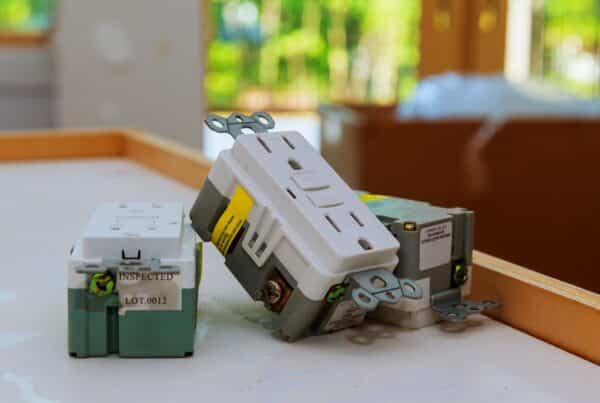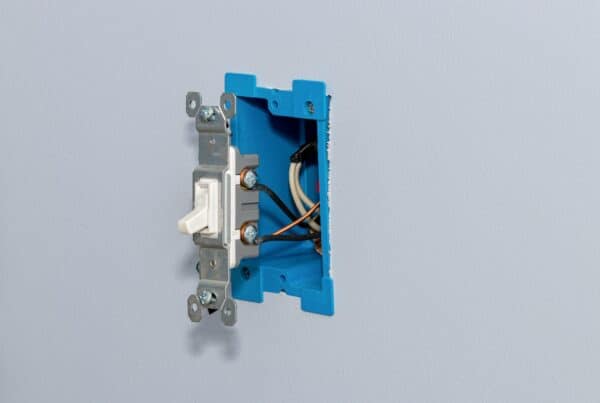
The piercing chirp of your smoke detector is enough to jolt you awake at night. Your first instinct is probably to swap in a fresh battery to restore the peace – but what if the sound persists? How long is the smoke detector supposed to keep chirping once you’re done changing the battery?
Don’t worry – in this post, we’ll cover all the necessary basics of your smoke detector’s chirping. From proper battery replacement to expert troubleshooting tips, we’re here to make sure you’re ready to confidently tackle common smoke detector issues.
Why Smoke Detectors Chirp
It’s not always easy to distinguish between them, but there are three main reasons for the chirping. The first and most common reason is a low battery.
Smoke detectors have a built-in system that monitors battery life and triggers an intermittent chirp when it’s low. Think of it as your smoke detector’s way of nudging you to replace the battery before it dies completely.
Another reason for chirping is the need for maintenance. As dust, dirt, and even spider webs accumulate, they can interfere with the sensors. The detector uses this chirp as a way of requesting a good cleaning. This occasional “check-up” chirp is your smoke detector’s way of saying, “Hey, I could use a little TLC over here!”
Lastly, a rapid, nonstop chirping probably means your smoke detector has reached the end of its lifespan. Most units are designed to last between 8-10 years, so constant chirping means it’s time to replace.

Properly Changing Batteries
When you hear that telltale chirp, it’s important that you replace the battery correctly so your smoke detector can get back to work. Here are some practices to keep in mind:
- Choose the right battery: Consult your smoke detector’s user manual or check the back of the unit to determine the specific type of battery required. Most models use AA, AAA, or 9V batteries. Using the correct type prevents compatibility issues.
- Opt for fresh batteries: Avoid using batteries from the junk drawer that may have been sitting around for years. Always install new, unexpired batteries in your smoke detectors for optimal performance.
- Follow the manufacturer’s instructions: Each smoke detector has specific guidelines for battery replacement, including the correct orientation and how to avoid battery discharge. Follow these instructions closely to prevent incorrect installation.
- Ensure a snug fit: When inserting the new battery, make sure it clicks or snaps securely into place. A loose battery can lead to connectivity issues and prevent the alarm from functioning correctly.
- Test the unit: After replacing the battery, always test your smoke detector by pressing the “test” button. If you hear a loud alarm sound, you’ll know the new battery is powering the unit effectively.
After Battery Replacement
After changing the battery according to the manufacturer’s guidelines, the smoke detector should stop chirping almost immediately. Because the device relies on battery power to function, a fresh battery should restore normal operation right away.
In some cases, you may hear a few additional chirps or beeps within the first couple of minutes after replacing the battery. This is a normal part of the unit’s reset process as it adjusts to the new power source. However, the chirping should not continue beyond these initial few minutes. If it does, it could indicate:
- A faulty or improperly installed battery
- An issue with the smoke detector’s power connection
- Dust or debris interfering with the smoke sensor
- The unit has simply reached the end of its functional lifespan
Troubleshooting a Chirping Smoke Detector
If you find that your smoke detector keeps chirping incessantly for a full day after replacing the battery, there’s likely another issue at play. Don’t ignore the problem – instead, try these troubleshooting steps:
- Double-check the battery: Verify that you’ve installed the correct type of battery and that it’s properly seated according to the manufacturer’s instructions. Make sure the battery hasn’t expired and that it fits snugly in the compartment.
- Look for debris: Use a can of compressed air to gently blow out any dust, cobwebs, or insects that may have infiltrated the smoke detector. Alternatively, you can carefully vacuum the unit using a soft brush attachment.
- Reset the alarm: Locate the reset button on your smoke detector (refer to the user manual if needed) and press it firmly after ensuring the battery is properly connected. This can sometimes resolve chirping issues.
- Consider replacement: If your smoke detector is more than 8-10 years old, it may have simply reached the end of its functional life and require replacement.

Other Recommended Maintenance
Experts recommend testing your smoke alarms monthly by pressing the test button and listening for a loud, audible beep. This quick check verifies that the battery is still functioning and the alarm is ready to alert you in case of an emergency.
To prevent dust and debris from clogging the sensors, gently vacuum your smoke detectors every six months. Be careful when cleaning the unit and never paint over them, as this can block crucial components.
Keep in mind that smoke detectors gradually lose sensitivity over time! To ensure you have an alarm capable of quickly detecting potential fires, replace your units at least every 8-10 years. When installing a new smoke detector, follow the manufacturer’s guidelines and always test the unit afterward.
When to Call a Professional
Don’t live with the headache-inducing noise or simply ignore the problem. Professional technicians have access to specialized tools and equipment that allow them to test for problems you might not be able to identify on your own, such as wiring issues or malfunctioning sensors.
They can also perform a thorough cleaning, check for any loose connections, ensure the compatibility of your units, safely replace outdated alarms, and verify that everything is working correctly after servicing.
Conclusion
While a chirping smoke detector can be a real nuisance, especially after changing the battery, it’s essential to remember that this noise could be pointing to a more serious issue.
Chirping should stop almost immediately after changing the batteries but don’t hesitate to get help if the problem persists. To schedule an expert inspection of your home’s smoke detectors or the whole house, call All Coast Home Inspections in Houston, TX, and surrounding areas.



